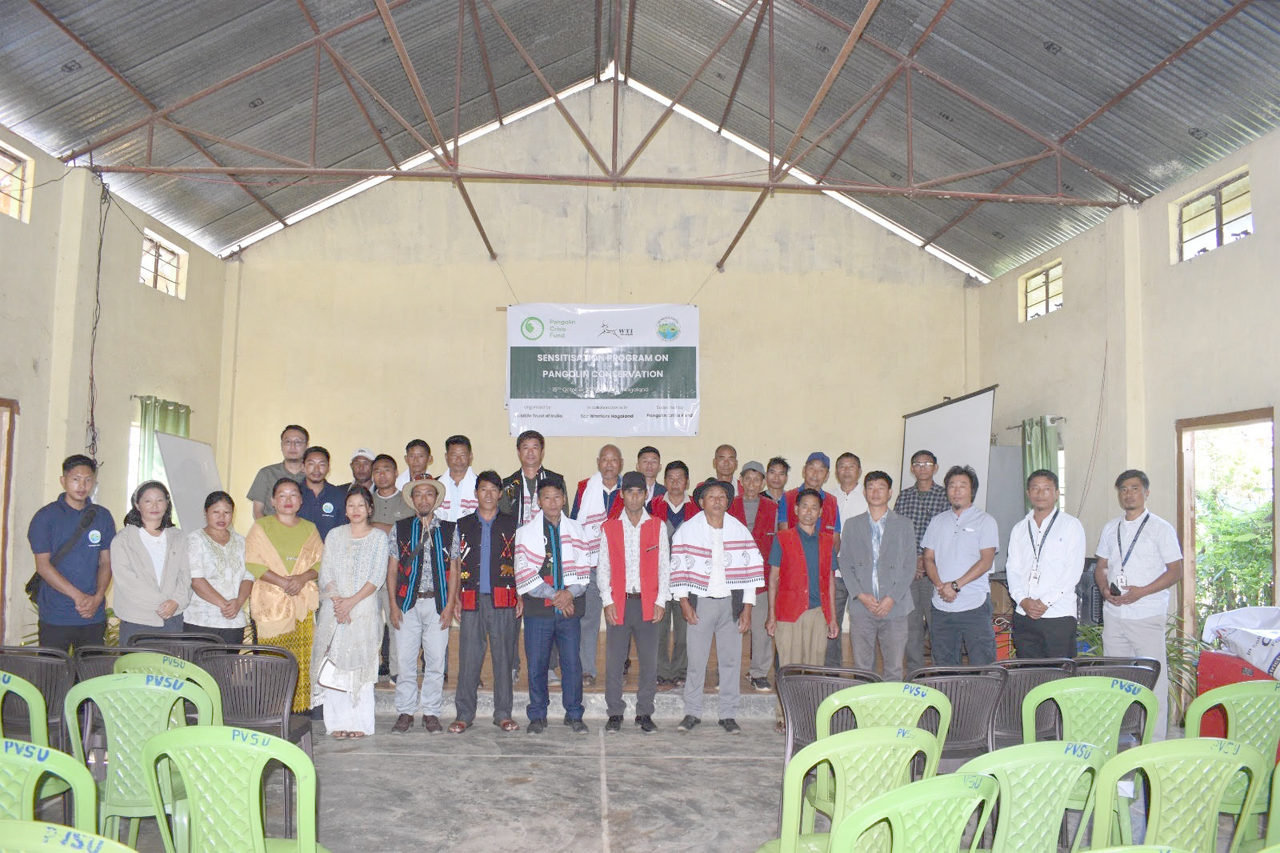In a significant boost to wildlife conservation efforts, the Pujenvong council, under Kiphire district in Nagaland, has declared a complete and immediate ban on the hunting, consumption, and trade of Pangolins within its jurisdiction.
The decision aims to protect the critically endangered mammal, which faces severe threats from poaching across Northeast India.
The ban, implemented by the village councils and community organizations, specifically targets the illegal activities that have pushed the species to the brink of extinction. Pangolins, often called “scaly anteaters,” are the world’s most trafficked mammal, highly sought after for their scales—falsely believed to have medicinal properties—and their meat.
Northeast India, particularly along the Indo-Myanmar border, has become a major transit route for the illegal trade.
The announcement is expected to have a profound impact, especially given the historical hunting practices in parts of the region. However, conservation awareness campaigns, particularly by groups like the Wildlife Trust of India (WTI) and dedicated local NGO Eco Warrior Nagaland, have recently spurred a notable shift in community attitudes towards wildlife Conservation.
Download Nagaland Tribune app on Google Play

“This is a crucial moment for Pujenvong Council and the Chinese Pangolin,” stated by Pungro Students’ Union, “The cooperation of the village councils will be the most powerful deterrent against poachers. This ban not only protects an endangered species but also reinforces our community’s commitment to preserving our natural heritage.”
Pungro is a home to the Fakim Wildlife Sanctuary and sits near the rich biodiversity of the Saramati mountain range, making it a critical habitat for several endangered species, including the Pangolin. The local administration is now focused on engaging community enforcement bodies and increasing patrols to ensure strict compliance with the new regulations.
The move by Pujenvong Council follows similar community-led conservation resolutions passed in other Naga-inhabited areas, setting a strong precedent for wildlife protection across the broader region. Conservationists are hopeful that this local action will inspire other divisions to follow suit and help break the illegal trafficking network of the threatened species.
Later, Pujenvong Council Consisting of four Village Councils have appreciated the Wildlife Trust of India, (WTI) & Eco Warriors Nagaland for such conservation initiatives.

